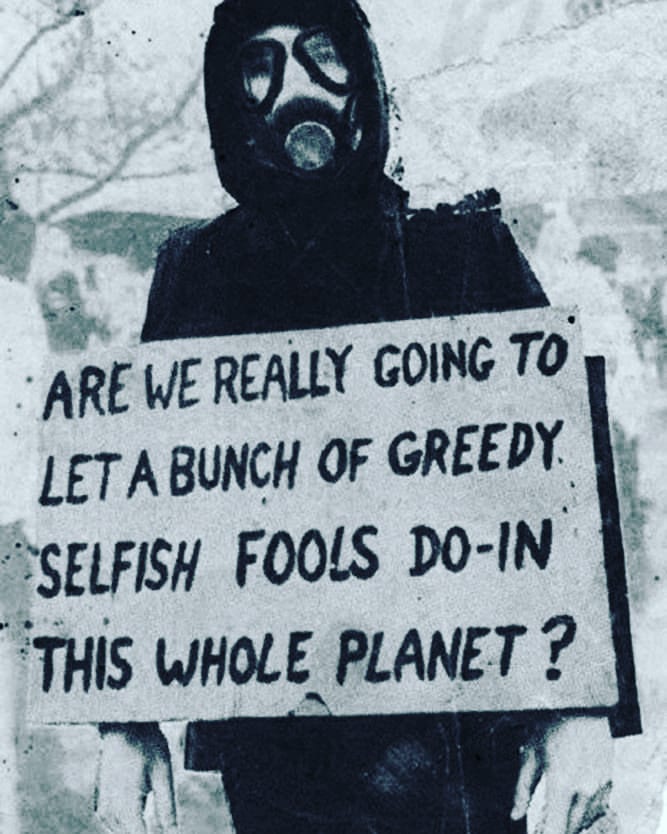Richard Murphy is right: it is time to take leave of the 20th century. The decisive challenge facing society is climate change and all other social or economic developments are going have to accomodate this.
Richard Murphy is Professor of Practice in International Political Economy, City University of London. He campaigns on issues of tax avoidance and tax evasion, as well as blogging at Tax Research UK
Cross-posted from Tax Research UK

I admit that I am not objective about this comment made on Vox:
The Green New Deal is what it means to be progressive. Clean air, clean water, decarbonizing, green jobs, a just transition, and environmental justice are what it means to a progressive,” Sean McElwee said. He’s the director of Data Progress, a young think tank whose work has substantially informed the GND. “By definition that means politicians who don’t support those goals aren’t progressive. We need to hold that line. Get on the GND train or choo-choo, xxxxxx, we’re going to go right past you.
The language could have been slightly more subtle. The point is unambiguous. The aim of those presenting the Green New Deal in the USA is to redefine what it is to be progressive.
I welcome this. As far as I am concerned that has always been the case in the UK as well; it’s just that things have gone a little faster in the US of late.
If 2008 revealed anything it was that the left was bereft of ideas. I remember Occupy as a good example. The mood was right. The challenge was properly made. But when those outside St Paul’s were asked what they wanted there was a long silence. They eventually asked for a tax justice agenda, and I had no problems with that. They even used some of my ideas as I recall. But it took too long to deliver and it was too narrow in focus, even in the heart of the City.
And the problem has recurred since. As I have said, without increasing my popularity as a consequence, nationalising rail and water are perfectly OK objectives but they do not actually change much. And what they do suggest is that our current problems are those of the twentieth century, which quite emphatically they are not. This has been Momentum’s problem, in my opinion. Just what has the agenda been? I know in detail, but what’s the big idea?
That’s what the Green New Deal is. It’s the big unifying idea. It’s the theme around which everything else is built.
It has a purpose which has to be delivered: our survival depends on it.
It embraces fundamental elements of justice, and has a commitment to equality running through it which is inescapable, partly because no-one can avoid the problem of climate change, meaning no one can really opt out of this issue.
And when it comes to economics, you can argue it’s unaffordable if you wish, but the alternative is much worse, so the simple fact is that the existing model that suggests the GND is unworkable simply shows its own shortcomings as a result. If the planet and its people demand the right to survive and finance says no there can only be one winner, and it’s not going to be the City.
We can, and we will sweat over the detail. That’s obvious. But the truth is that the Green New Deal pulls together three things. They are climate change. And the pressing need for social justice. Plus the requirement to rethink the economy.
You can’t argue climate can wait any more.
The alternative to social justice is populism.
And whilst I am aware that those enslaved, on both left and right, to out of date interpretations of long dead economists wish to deny the realities that the core arguments of MMT explain, the fact is that the world is going to have to sweep them and their left and right wing dedication to market fundamentalism aside to deliver the reform that only the state, with its money making ability, can now deliver.
What it is to be progressive has, I suspect, been redefined for a generation to come. Deal with it, is my suggestion. In every sense.


Be the first to comment